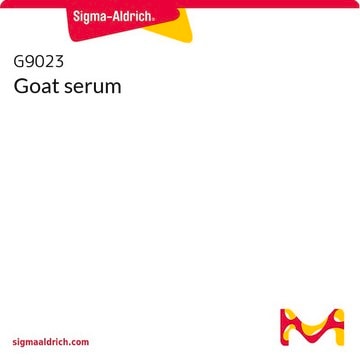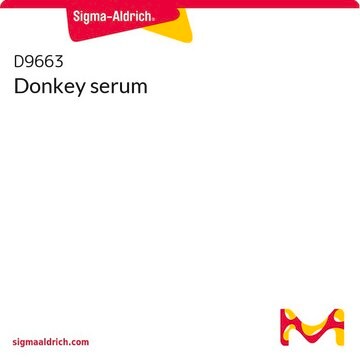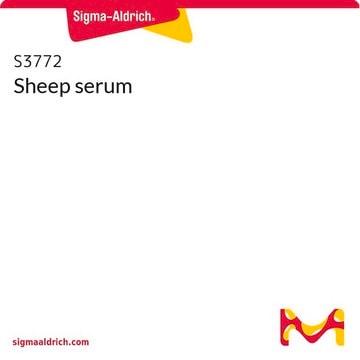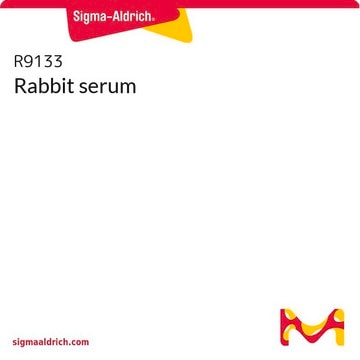G6767
Goat Serum Donor Herd
USA origin, sterile-filtered, suitable for cell culture
Synonym(s):
caprine sera, caprine serum, goat sera
About This Item
Recommended Products
biological source
goat
sterility
sterile-filtered
composition
hemoglobin, ≤30 mg/dL
origin
USA origin
technique(s)
cell culture | mammalian: suitable
impurities
≤20 EU/mL endotoxin
shipped in
dry ice
storage temp.
−20°C
Related Categories
General description
Application
- immunocytostaining
- immunofluorescence staining
- immunohistochemistry
Preparation Note
Analysis Note
Storage Class Code
10 - Combustible liquids
WGK
WGK 3
Flash Point(F)
Not applicable
Flash Point(C)
Not applicable
Personal Protective Equipment
Certificates of Analysis (COA)
Search for Certificates of Analysis (COA) by entering the products Lot/Batch Number. Lot and Batch Numbers can be found on a product’s label following the words ‘Lot’ or ‘Batch’.
Already Own This Product?
Find documentation for the products that you have recently purchased in the Document Library.
Customers Also Viewed
Articles
Find answers to frequently asked questions (FAQs) about FBS and other serum products, and links to related products.
Find answers to frequently asked questions (FAQs) about FBS and other serum products, and links to related products.
Find answers to frequently asked questions (FAQs) about FBS and other serum products, and links to related products.
Find answers to frequently asked questions (FAQs) about FBS and other serum products, and links to related products.
Our team of scientists has experience in all areas of research including Life Science, Material Science, Chemical Synthesis, Chromatography, Analytical and many others.
Contact Technical Service









